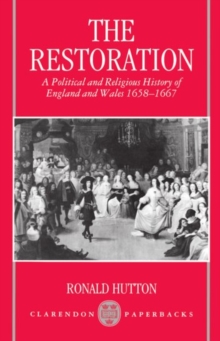
Kafka's Clothes : Ornament and Aestheticism in the Habsburg Fin de Siecle Paperback / softback
by Mark M. (Associate Professor of German and Comparative Literature, Associate Professor of Anderson
Part of the Clarendon Paperbacks series
Paperback / softback
Description
'One should either be a work of art, or wear one', proclaimed Oscar Wilde at the end of the nineteenth century; 'I am made of literature, I am nothing else, and cannot be anything else' Franz Kafka proclaimed a brief decade later.
Between these two claims lies the largely unexplored region in which the European decadent movement turned into the modernist avant-garde. In this highly acclaimed, original historical study, Mark Anderson explores Kafka's early dandyism, his interest in fashion, literary decadence, and the 'superficial' spectacle of modern urban life as well as his subsequent repudiation of these phenomena in forging a literary identity as the isolated, otherworldly 'poet' of modern alienation.
Rather than posit a break between these two personae, Anderson charts the historical continuities between the young Kafka and the author of The Metamorphosis and The Trial.
The book demonstrates how clothing functions as a semi-private code of meaning in his literary works and the extent to which the aestheticist notion of becoming the work of art haunts Kafka's conception of writing throughout his life. The result is a startlingly unconventional portrait of Kafka and Prague at the turn of the century, involving such issues as Jugendstil aesthetics, Otto Weininger's 'egoless' woman, the Viennese critique of architectural ornament, the clothing-reform movement, anti-Semitism, and the questions of Jewish-German writing. From reviews of the hardback:'This rich and subtle study sets new standards for historical and textual interpretation of Kafka.'Ritchie Robertson, The Modern Language Review'by far the most important Kafka book to appear since the early work of Klaus Wagenbach in the 1960s'Monatshefte
Information
-
Out of stock
- Format:Paperback / softback
- Pages:244 pages, 16 pp halftones
- Publisher:Oxford University Press
- Publication Date:29/12/1994
- Category:
- ISBN:9780198159070
Information
-
Out of stock
- Format:Paperback / softback
- Pages:244 pages, 16 pp halftones
- Publisher:Oxford University Press
- Publication Date:29/12/1994
- Category:
- ISBN:9780198159070










